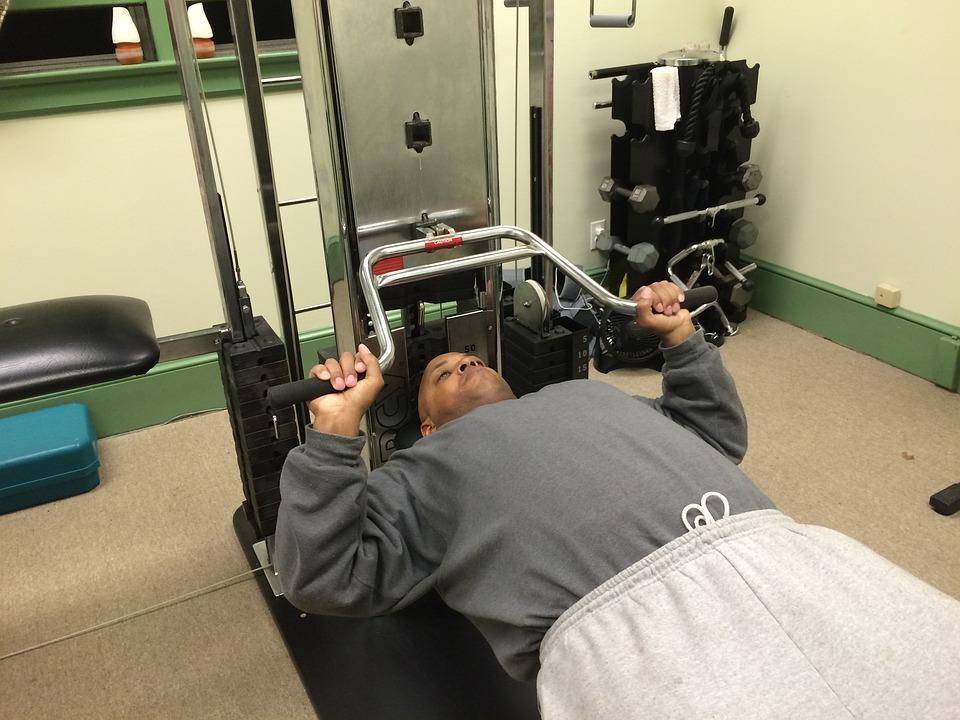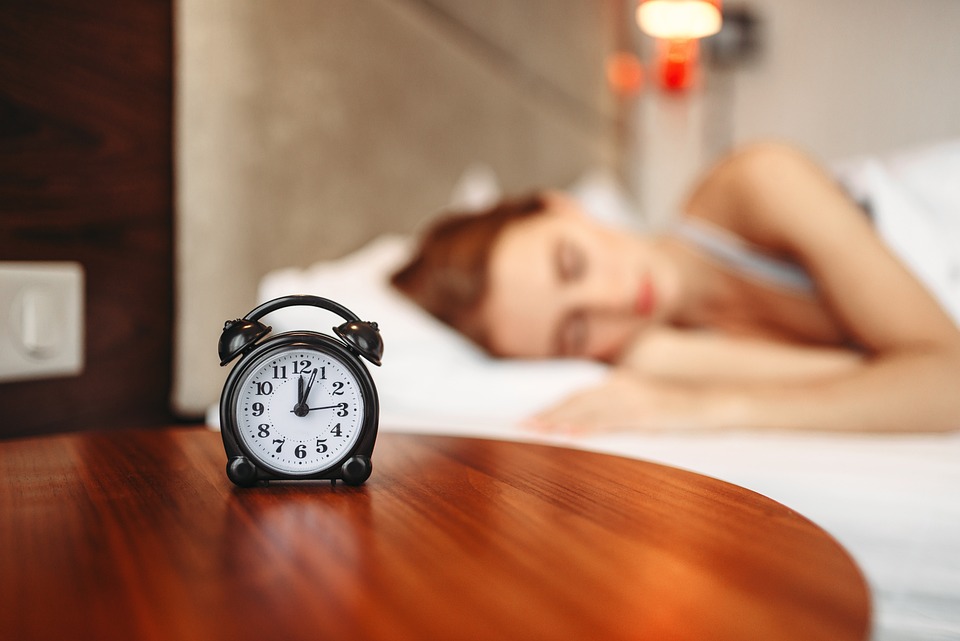
Although it may feel satisfying to press the snooze button on your alarm in the morning, it can have negative effects on the quality of your sleep.
The Telechron 7H241 was introduced by General Electric Company in 1956. The alarm clock is announced as being the most humane in the world and is known for introducing the snooze button. It said that it would be a new, gentler way to wake up and that it would only take a simple click to get a few extra minutes of sleep.
Why do we snooze?
You sleep to feel rested and have more energy. The sensation of waking up is unpleasant and pressing the snooze button allows you to postpone the sensation for as long as possible. An extra 10 minutes of sleep is like a delicious treat after lunch.
Some people believe that sleeping more than the recommended amount can help them feel more awake. There is no scientific evidence to support the claim that ten minutes of sleep will make you feel more refreshed. The feeling of freshness is more likely due to your belief that it will, rather than the sleep itself. This belief is called the placebo effect.
Why Snoozing is Bad for your health
In a perfect world, we wouldn’t need alarm clocks. We woke up feeling refreshed and motivated every morning. Sadly this is a fantasy for most people. We’re controlled by our alarm clocks and, to a lesser degree, the snooze button.
Although we all enjoy a good nap, we know that deep down it’s not really good for us. At best it’s little more than a psychological crutch.
The snooze button can have negative consequences like throwing off your body’s natural sleep rhythm and making you feel more tired.
Robbing you of REM sleep
There are two primary types of sleep: REM (rapid eye movement) and NREM (non-REM). During NREM sleep, your body and brain relax. REM is an active state, while the other is not.
During REM (Rapid Eye Movement), your muscles twitch constantly and your brain exhibits high levels of electrical activity.
At night we constantly move between these two states. During the beginning of the night, people usually experience more slow-wave sleep. As morning approaches, people usually experience more REM sleep. To get the most benefit from sleep, you need to get a full night’s sleep including both REM and NREM sleep.
If you’re constantly hitting snooze on your alarm, you might be missing out on key REM sleep in the morning. If you are awoken by an alarm, you have already disrupted your sleep cycle and it is unlikely you will be able to fall back into REM sleep.
This means that by pressing the snooze button, you are negatively impacting your health. If you are constantly disturbed during your sleep, it can lead to problems with your memory, reaction time, and emotions during the day.
You probably tried to find out if sleeping more is bad for you. Sleeping for a few extra minutes may feel momentary pleasure, but it does more harm than good. Here are the problems of snoozing:
1. You alarm your heart every time you snooze:
Walker claims that taking a nap is one of the worst things you can do to your sleep. Whenever an alarm goes off while you’re asleep, it startles your heart with a small dose of adrenaline. Skipping Sleep Has Serious Health Consequences Skipping sleep can have serious consequences for your health, including your cardiovascular system. Each time you snooze, your cardiovascular system is assaulted again in 10 minutes.
The body functions more smoothly when you wake up without an alarm. Not everyone can wake up without an alarm, so it’s best for your heart if you wake up at the first alarm.
2. You confuse your body about waking up
When you wake up you may feel a little dizzy and less alert than usual. Your brain and body enter a different state when you fall asleep, causing you to snore. It takes a few minutes for your brain to shift from being asleep to being awake.
” Hitting the snooze button tells your body that the alarm is not real. Go back to sleep”. For the alarms that come after the first one, your body isn’t sure if it should get ready to wake up or go back to sleep. If you keep irregular hours, you will start to confuse your body about when it should sleep and when it should be awake.
3. Lack of REM sleep
Your sleep cycle has two phases: Rapid Eye Movement (REM) sleep and Non-REM, or deep, sleep. Your body integrates information gathered during the day with prior knowledge during REM sleep. After you have had a REM sleep, you will be smarter and more intelligent than you were before you slept.
Toward the end of your sleep, you will enter REM sleep. By snoozing, you prevent the cycle from completing. If you wake up at the sound of the first alarm at 7:30 AM, you will finish your REM sleep.
4. You mess up your body clock
If you Fall Asleep Daily, you will have different Wake-Up Times Each Day. Sometimes you wake up at the first sound of the alarm, and sometimes you hit the snooze button multiple times before getting up. Many times you turn off the snooze button and let fate decide. To make matters worse, your weekends have a different routine where you wake up 2 hours later than your average weekday time.
Waking up at different times each day disrupts your body’s natural sleep schedule. Each day your body tries to adapt to your waking up time, but it cannot identify a pattern.
5. Incomplete sleep
Your body sleeps in cycles of 90 minutes each. If you slept for 6 hours last night, you would have completed four sleep cycles. Your body cannot enter a sleep cycle when you snooze. It tries to enter the sleep cycle but is woken up a few minutes later.
You might think that getting a few extra minutes of sleep by hitting the snooze button will help you feel more rested. However, you will end up feeling more exhausted because you have interrupted your sleep cycle. Try setting your alarm for an earlier time and see how you feel.
6. You start the day procrastinating
When you snooze your alarm, you’re telling your brain that you want to postpone waking up. By starting your day with procrastination and laziness, you’re setting yourself up for a more productive day. For some people, a slow start to the day can make them feel lethargic and unproductive for the rest of the day.
Your brain may interpret not being able to get out of bed as a failure, and that feeling can carry over into the rest of the day.
7. Do not fool yourself with an early alarm
If you claim you’re going to wake up at 7 AM but you’re waking up at 7:30 AM, you’re only fooling yourself. If you don’t hit the snooze button multiple times, you’ll wake up at your usual time. If you wake up during REM sleep, you not only interfere with your sleep schedule, but you also deprive your body of the extra 30 minutes of uninterrupted sleep.
If you set one alarm for the desired wake-up time instead of using multiple snoozes, you will wake up feeling fresher and more energetic.
How to break the snooze habit
If you wake up at an inopportune time, you may experience sleep inertia, which is the drowsy, transitional state before you’re fully awake.
Sleep inertia is a period of sleepiness and grogginess that can last for a few minutes or up to several hours. If you wake up during slow-wave sleep, the effects can be worse than being legally drunk.
To reduce the effects of sleep inertia, first, try to identify your natural body clock and when you are most likely to feel sleepy. Are you a lark or an owl? Is it necessary for you to sleep for 8 hours, or can you get by on 6.5 hours?
Next, take a look at your current sleep habits. Are you practicing good sleep hygiene? Instead of trying to go against your natural urges, try creating a routine that works for you.
Professor Kevin Morgan, a scientist from Loughborough University’s sleep research unit, recommends focusing on setting a regular wake-up time, rather than a fixed bedtime.
If you are vulnerable to not getting enough sleep, you should try to wake up at the same time every morning to regulate your body clock. Your biological system works better when you go to bed at different times in the evening, rather than always going to bed at the same time.
If you need help breaking your snooze button habit, we have a list of tips, from quick solutions to long-term behavior-modifying rituals.
1. A sunrise alarm clock
Humans are not designed to wake suddenly. We’ve evolved to slowly get up when the sun starts to come up and there is more daylight.
Human circadian clocks are programmed to respond to early dawn light by releasing cortisol, a wake-up hormone, and stopping the flow of the ‘darkness hormone’ melatonin.
There is an effective alternative to sleeping under the stars- a sunrise alarm clock. Dawn simulators are devices that mimic the sunrise by gradually increasing the amount of light in a room.
Instead of having a loud alarm that goes off at 9:30, a sunrise alarm clock slowly produces a light that gradually gets brighter until it is at full brightness at the time you want to wake up. While most wake-up lights come with an alarm tone in case the light wasn’t enough to wake you up, some don’t have this feature.
2. Put your alarm clock out of reach
This is an old favorite but works a treat. Place your alarm clock on the opposite side of the room, so that when it goes off, you will have to get out of bed. There are many different ways to approach this problem, some people use two different alarm clocks, although I think this only slightly better than pressing the snooze button.
3. Give yourself a reward
If you give yourself an enjoyable mental activity in the morning, you will be less likely to want to sleep afterward. Think of a reward that is both mentally stimulating and enjoyable.
TV does not qualify as it is more of a sedentary activity. As soon as your alarm goes off, turn on the lights and start thinking for 5 or 10 minutes. You will be less likely to fall asleep again if you keep your mind occupied. Here are a few suggested activities if you’re stuck for ideas:
- read your favorite book
- play a musical instrument
- check your email/Twitter/Facebook
- play a computer game
4. Wake up and smell the coffee
Caffeine is a powerful stimulant that affects your brain and nervous system. You can experience theAlerting Effect just by smelling coffee. Scientists found that coffee activates several genes in the brain in ways that reduce the effect of sleep deprivation when they tested the theory on rats.
You can test this theory by getting a coffee machine with a timer and placing it near your bed. Set it to start brewing 10 minutes before your alarm goes off. The smell of your coffee will wake you up slowly and calmly, and you will have a hot cup of your favorite coffee waiting for you as soon as you get out of bed.
5. Leave curtains slightly open
In the morning, natural light should enter your bedroom. The time of day is determined by your body clock based on the morning sunlight it receives, not by looking at your smartphone.
Not too long ago, day and night were defined by natural light. The artificial bulbs in your houses and on the streets have disrupted your internal body clock. Legacy thinking has been shattered by modernity.
If you open the curtains at 8 AM, your body will think it is morning. What would it be like if the timing of this changed again during the weekend?
Leaving the curtain slightly open or using thinner blinds helps your body clock regain control by allowing light to pass through.
6. Increase the temperature
Around an hour before you wake up, your body starts to get ready for the day. Sleep becomes less deep, hormones that make you wake up are released, and body temperature starts to increase. Waking up when your body’s core temperature isn’t quite high enough can make it harder to wake up.
If you gradually increase the temperature of your bed or your bedroom, it can help you gently wake up and get out of bed. Many gadgets can help regulate the temperature in your home, like Moona and Eight. You can also set your central heating to start warming up your bedroom before your alarm goes off or get an electric heater with a simple timer.
7. Install the blue light filtering app on your phone
Your phone emits various spectrums of light. The blue light from screens makes it harder for your body to produce melatonin, which makes you feel sleepy. When you like a lot of pictures on Instagram while you’re in bed, it makes it harder for you to fall asleep.
You can reduce the amount of blue light emitted from your device by installing an app that adjusts the color of your screen based on the time of day. There are many apps available on the Android platform that can be installed from the Play Store.
On an iPhone with iOS 9.3 or higher, you can use the Night Shift feature in the native app to filter blue light. You can set up a night mode under Settings -> Display and Brightness that will turn off some of the lights that can disturb your sleep at a scheduled time.














